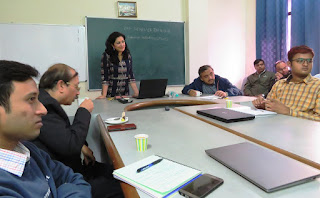Abstract: Over the past thirty years, the world's patent systems have experienced pressure from civil society like never before. From farmers to patient advocates, new voices are arguing that patents impact public health, economic inequality, morality—and democracy. These challenges, to domains that we usually consider technical and legal, may seem surprising. But in Patent Politics, the speaker argues that patent systems have always been deeply political and social. To demonstrate this, Parthasarathy takes readers through a particularly fierce and prolonged set of controversies over patents on life forms linked to important advances in biology and agriculture and potentially life-saving medicines in the United States and Europe. Clashes over whose voices and which values matter in the patent system, as well as what counts as knowledge and whose expertise is important, look quite different in these two places. And through these debates, the United States and Europe are developing very different approaches to patent and innovation governance.
About the Speaker: Shobita Parthasarathy is Professor of Public Policy and Women's Studies, and Director of the Science, Technology, and Public Policy Program, at University of Michigan. Her research focuses on the governance of emerging science and technology in comparative perspective. She is interested in how technological innovation, and innovation systems, can better achieve public interest and social justice goals, as well as in the politics of knowledge and expertise in science and technology policy. She has done research in the United States and Europe, and her current research focuses on India. She is the author of numerous articles and two books: Patent Politics: Life Forms, Markets, and the Public Interest in the United States and Europe (University of Chicago Press, 2017) and Building Genetic Medicine: Breast Cancer, Technology, and the Comparative Politics of Health Care (MIT Press, 2007). Patent Politics received the 2018 Robert K. Merton Award from the Science, Knowledge, and Technology section of the American Sociological Association, for an outstanding book on science, knowledge, or technology. Findings from Building Genetic Medicine influenced the 2013 US Supreme Court decision prohibiting patents on isolated human genes. She holds a Bachelor's degree in Biology from the University of Chicago and Masters and PhD degrees in Science and Technology Studies from Cornell University.



No comments:
Post a Comment